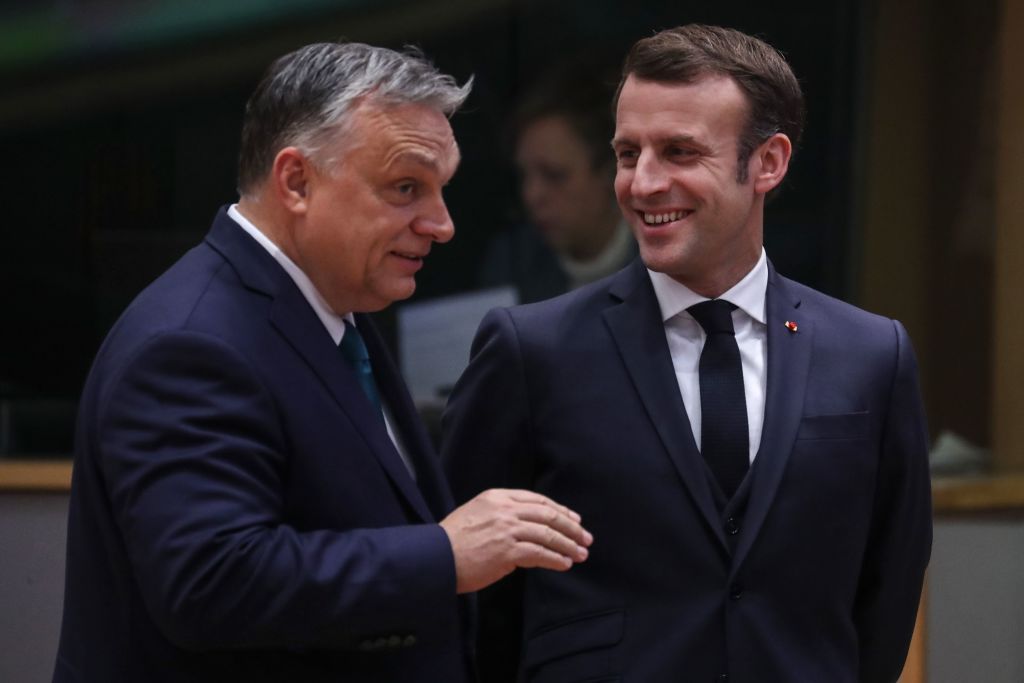As Brexit negotiations enter a critical stage, the EU’s eyes may again have been diverted after Hungary and Poland plunged the bloc into yet another crisis. The Visegrád Group allies have vetoed the EU’s €1.8 trillion ($2.06 trillion) budget and recovery package, responding to plans to make cash conditional on adherence to the ‘rule of law’.
The move is likely to exacerbate tensions not just between central and eastern European member states and those in the West, but among Western European member states themselves. Heated debate earlier this year saw ‘coronabonds’ shelved and financial agreement reached only after concessions to the so-called ‘Frugal Four’.
What now for this precarious arrangement, given the fact that fresh lockdowns are undermining any hope of a fall economic recovery across the EU? Patience is running low in virtually every European capital.
Be under no illusion, a new Iron Curtain is falling back down the spine of Europe. But this Iron Curtain is cultural, not economic. Central and eastern European states are part of what one may call an axis of nationalism sweeping the eastern half of Europe, across Eurasia and into east Asia.
Brussels generally perceives several central and eastern European member states as slipping back in terms of the rule of law, aggrieved that many of these countries will not sign up to what Western European leaders see as ‘progressive’ values.
Meanwhile, for the likes of Hungary and Poland, their view of the EU as a kind of EFTA-plus organization runs counter to the loftier ambitions of Berlin and Paris, never mind the goals of federalists like Guy Verhofstadt.
Given how many European companies are waiting on this money, the EU will either need a way of overriding Hungary and Poland, placating them yet again (which will aggrieve many in Western Europe), or finding a path to sideline the two.
For all the talk of Southern Europe being the Achilles heel of the EU, central and eastern Europe states — with many having retained their own currencies — are the ones more able to extricate themselves from the union.
While it is commonly believed that central and eastern European member states will not leave the EU thanks to the financial benefits they have gained, is this really the case? There is plenty of evidence to demonstrate that these countries are benefiting less and less financially from the EU as their economies grow. And given the issues at stake here can money alone induce the leaders of Hungary and Poland to change their beliefs? There is surely too much at stake politically for them to do that.
Yes, there has been pushback against an anti-abortion law in Poland. But that is perhaps better seen as an exception to a rule. No one in Brussels should get their hopes up that this signals a turning away from Catholicism and conservatism in the country.
[special_offer]
In fact, data from Pew demonstrates that — despite key differences — countries like Poland retain more in common with Russia when it comes to several social attitudes than with countries in Western Europe. Central and eastern Europe states are also acutely sensitive to any perceived external infringement on their sovereignty.
While Western Europe is de-Christianizing, central and eastern European states are re-Christianizing — the faith having been a rallying point against communism. Central and eastern European member states want a better standard of living, but not at any price, least of all (as they see it) at the cost of their sovereignty and identity.
At some point everyone must realize these are two incompatible views of Europe and the EU. The countries of central and eastern Europe cannot accept a federalizing and ‘progressive’ EU, while eventually the patience of Western member states will snap. If not now, at some point in the future, the inescapable will surely happen.
This article was originally published onThe Spectator’s UK website.


















